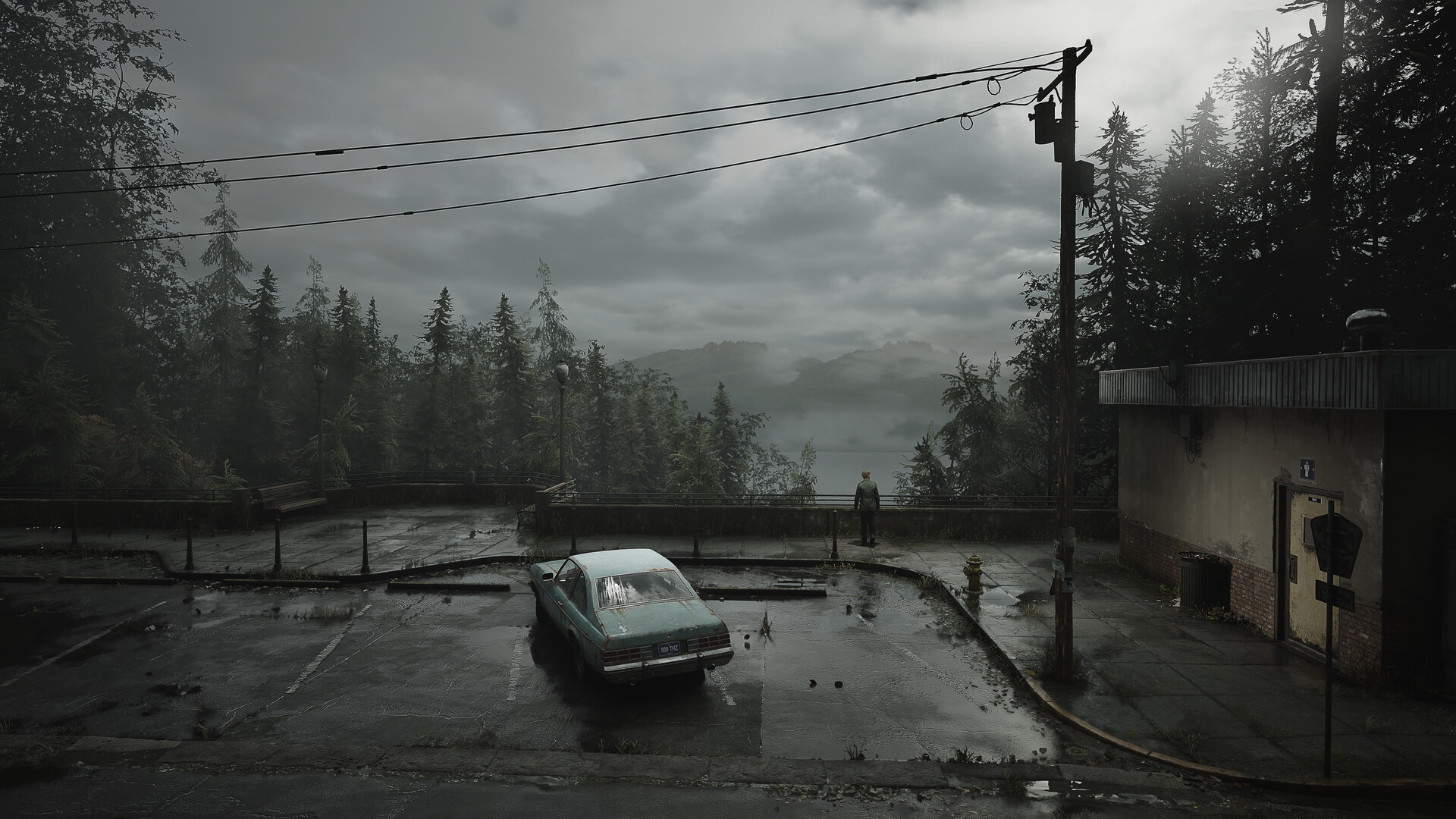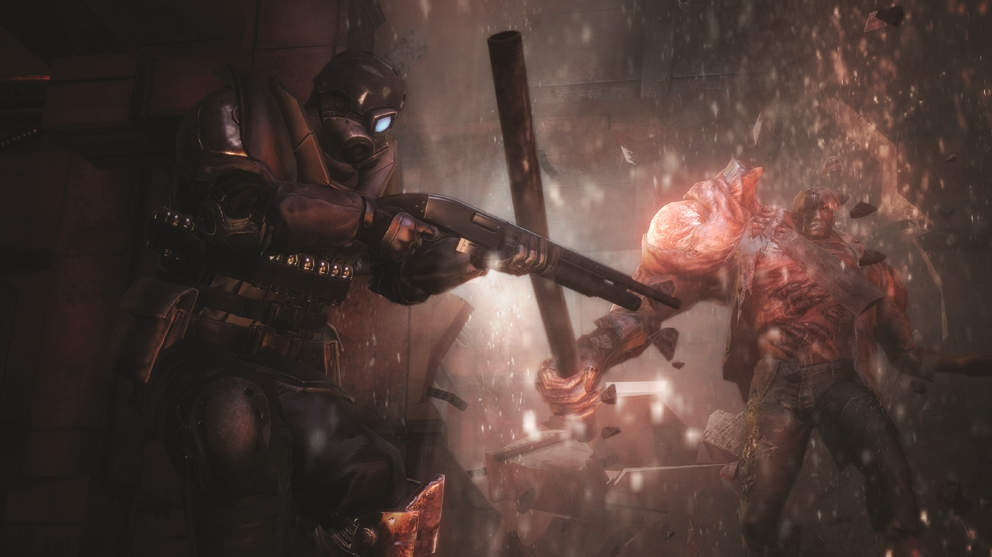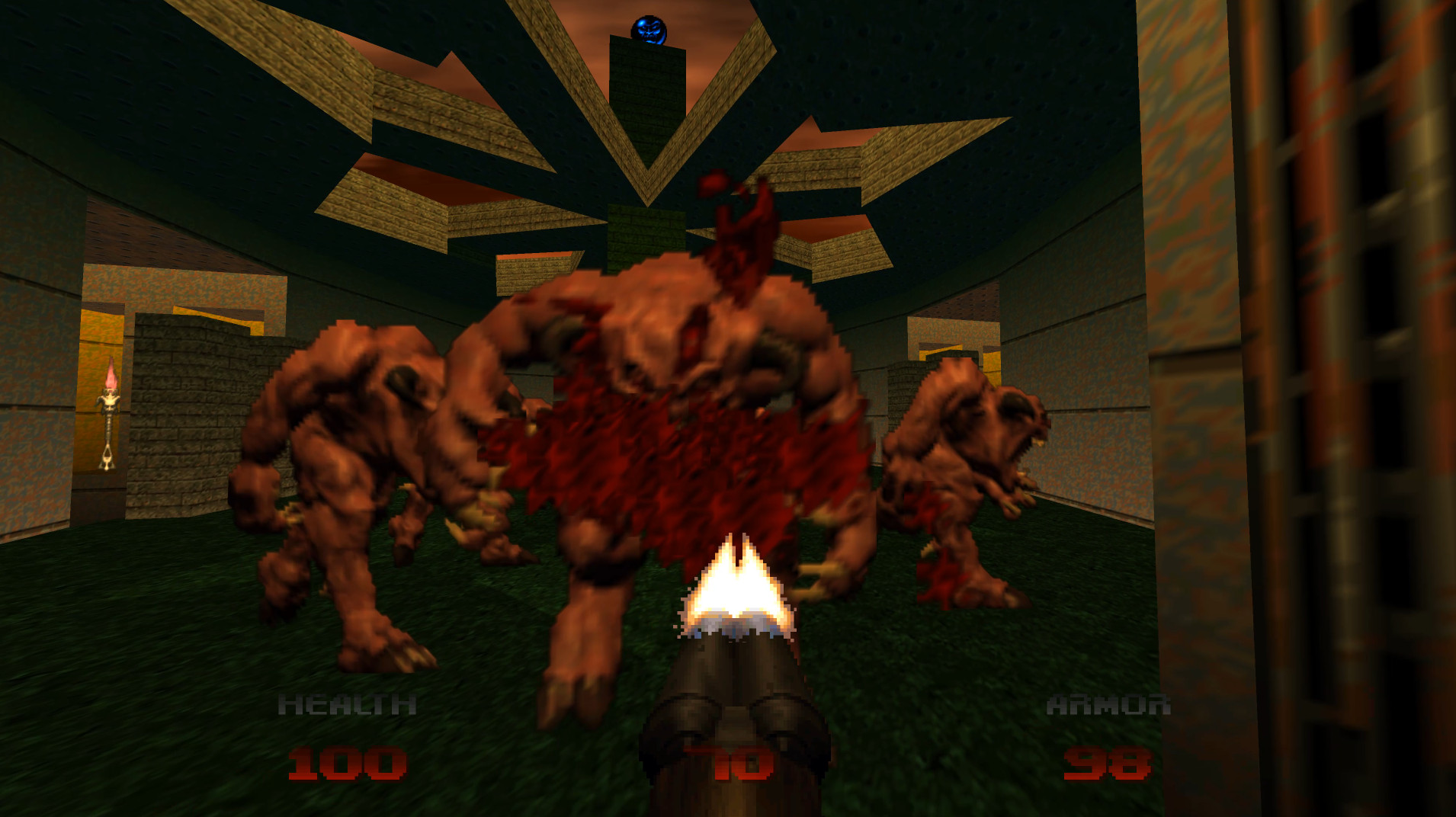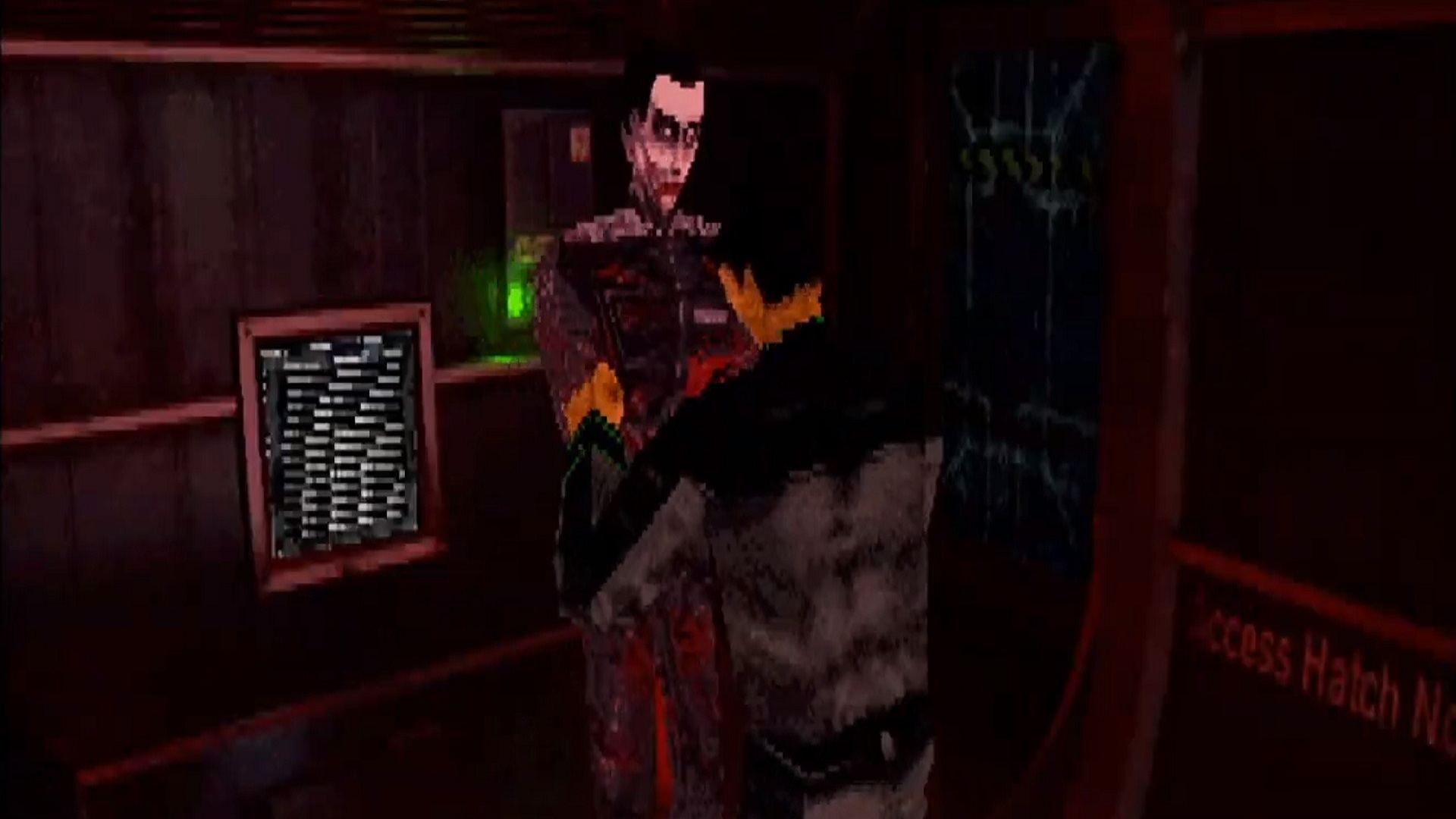
All in Your Head: Why it’s Time to Abandon Psychological Horror
‘Psychological horror’ is a vague term in games, especially compared to its bedfellows. Survival horror conjures up some very definite elements, like fixed camera angles, resource management, and puzzle-solving. Action-horror, meanwhile, invariably means a first- or third-person shooter with gribbly monsters and lots of flickering lights. But ‘psychological horror’ is harder to pin down, as it’s more about certain story elements and motifs rather than specific gameplay mechanics. And the thing is, those elements are so few that there’s only so much you can do with them. Arguably, it’s time to stop chasing psychological horror as a genre and start pursuing new avenues of terror.

Gettin’ all Shyamalan up in here
Let’s back up a bit here. It’s a hackneyed approach, but probably the best way to start is with a definition. Wikipedia – the font of all knowledge – defines psychological horror as ‘a subgenre of horror and psychological fiction with a particular focus on mental, emotional, and psychological states to frighten, disturb, or unsettle its audience.’ Also, it ‘often uses mystery elements and characters with unstable, unreliable, or disturbed psychological states to enhance the suspense, drama, action, and paranoia of the setting and plot.’
For horror games, you can narrow this definition down with two further additions, both of which are basically in-game applications of the sentiment described above. The first is the projection of elements of the character’s psyche onto enemy, item and/ or environmental design. The second is some sort of plot twist. The problem is that they’re both so well-worn that there’s not really much left to explore.

Take the plot twist first. When you boil it right down, there’s only a handful of twists in psychological horror: ‘They were dead’, ‘They were insane/ hallucinating,’ ‘They have amnesia (and probably did something horrible)’, ‘it was all a dream’, ‘it wasn’t all a dream’ and ‘wibbly-wobbly timey-wimey stuff’ (i.e. time loops, alternate timelines, and multiple universes, though usually, these come under sci fi- or cosmic horror). Quite often, a game may riff on several twists, either by being open to interpretation or having more than one ending.

All of these twists have been done to a lesser or greater extent in horror games. To name just a few (SPOILER ALERTS), Spec Ops: The Line ticks off several possible twists with its unreliable narrator, while there are no brownie points for guessing which one the Amnesia series goes for. The Half-Life mod Cry of Fear opts for the dead-all-along and insane-all-along routes with a couple of its endings. Cryostasis: Sleep of Reason and the first couple of Siren games go down the timey-wimey route, while Bloodborne plays on Lovecraft’s Dunsanian themes of dreams versus reality. The first two entries in the Dark Pictures Anthology play out like textbook examples of stock horror game twists, while the first The Evil Within game ends on a pretty unsatisfying variant of ‘it was all a dream’.
Our special place
The big elephant in the room, of course, is the Silent Hill series. When it comes to pure psychological horror, Silent Hill practically blows all the preceding entries out of the water, and this in large part captures the problem I’m pushing at. Throughout its history, Silent Hill has effectively done every single psychological twist in the book, and with P.T. and its canceled Silent Hills looked like it was even gearing up for a multiple-universes take. Long before the others were getting a look-in, Silent Hill had been there, done that.

This is even more, the case when it comes to symbolic imagery. Silent Hill – and Silent Hill 2 in particular – is the undisputed granddaddy of this kind of thing, to an extent that it’s hard to do anything similar without someone pointing to everyone’s favorite foggy town as a precursor. Realistically speaking, the best a modern psychological horror game can hope for if it’s trying to have a symbolic environment or enemy designs is that gamers will say that it ‘does the Silent Hill thing’ competently.
In short, psychological horror remains trapped by the influence of Konami’s famous IP. This revelation came to a head for me with the trailer of Bloober Team’s upcoming remake of SH2, which looks more or less like a shot-for-shot retread of the 2001 classic. I couldn’t say I was especially surprised. Because after all, what is there left to do? We’ve covered the twists, we’ve seen the Freudian monsters; where else is there to go?
Prison of the mind
The problem, I suspect, is that psychological horror has always been self-defined by limits that don’t allow for much competition. By definition, it concerns itself with the world of the mental, and effectively constrains its subject matter to the abstract and universal rather than the grounded and specific.
Take a look again at the twists. The most fundamental fear we have of our minds is that they might be faulty; that our basic perceptions of reality may be betraying us. Regardless of creed, status, or culture, this is a universal worry that horror can tap into. But there are only so many ways to exploit it, so games have to keep retreading the well-worn tropes of amnesia, insanity, and dying dreams.

Only one level of abstraction below this is our common emotions, which affect everyone in some way regardless of personal conditions. While SH2 tells a story with specific characters, in a specific time and place, it’s really about the psychological BIG CONCEPTS: desire/ sex and fear/ death. You can see a kind of thematic throughline running from SH2 to 4 with regard to these. Silent Hill 3 tries to counterbalance SH2’s very male-oriented handling of the topics with a female one, while Silent Hill 4: The Room approaches them from the perspective of The Other, distorting them through the lens of someone totally at odds with the normal run of humanity.
The downside with covering such themes – or rather, covering them as thoroughly as a series like Silent Hill did – is that there’s not a lot more to say once they’ve been done. Selfhood, want, mortality: if you’ve made a statement about such core aspects of human nature, anything that comes after is likely just covering old ground. It’s worth noting that one of the reasons Team Silent stopped making Silent Hill games after SH4 (which originally wasn’t even going to be a Silent Hill game) is that they felt like they didn’t have anything more to say with the IP. Nearly 20 years on, and I’d remain hard-pressed to say that any other horror game has made much more progress in psychological horror than the original Konami quartet.

A world of horror
Can psychological horror get out of its rut? Possibly not, at least if it remains confined by its own narrow focus on the purely mental and emotional. Down that route it seems destined to remain in the shadow of Team Silent’s opuses, forever covering the same tired plot twists.
What it needs – what horror gaming generally needs – is a new subgenre with which to work in. It needs a new subject matter, one that isn’t in danger of becoming myopically focused on a narrow concept of self. Instead of psychological horror, we need contextual horror; one that’s grounded in and engages with the real outside world.

The best examples I can think of that do this are Detention and Devotion. Developed by Taiwanese studio Red Candle Games, both these games – a 2D adventure puzzler and walking sim respectively – clearly have psychological elements, with each using symbolic environment design and plot twists. But at the same time, they draw their horror principally from the culture in which they were made. Detention focuses on the White Terror, a period of brutal repression in Taiwan by the ruling KMT Party, while Devotion looks at the pressure for professional success and the country’s problem with cults and other pseudo-religious scams. Both these games have a social and political aspect to them, and are all the more terrifying as a result, precisely because they engage with things actually do affect people in tragic and horrendous ways.
The hallmarks of psychological horror need not disappear entirely. But if the subgenre wants to find its way out of the fog, it needs games that find firm footing in the world we live in today.
You can check out DreadXP for more horror game reviews, interviews, editorials, and more.




